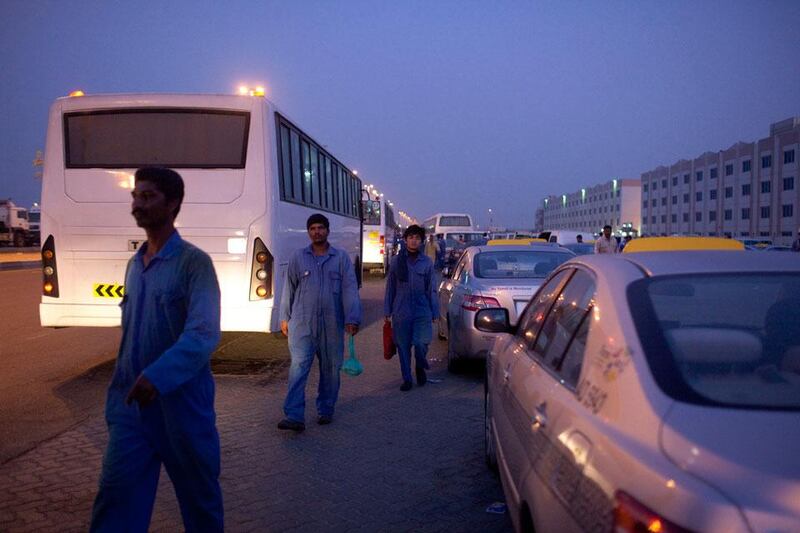Schoolchildren should meet low-income workers to learn about those living in less fortunate circumstances, head teachers say.
The idea to visit labour accommodation was among suggestions by heads of Abu Dhabi schools to officials in charge of the UAE’s moral education programme.
Mandatory classes in the subject were introduced across the country in 2017, but some head teachers say they are struggling with parts of the programme.
Education officials from the Crown Prince’s Court spent Tuesday and yesterday meeting school leaders in Dubai and Abu Dhabi.
On Tuesday, head teachers in Dubai said elements of the subject, which ranges from financial literary to civics, were too specialised for regular teachers.
Yesterday, Abu Dhabi heads suggested children should visit labour accommodation and hospitals as well as taking part in beach clean-ups as part of the drive to create responsible members of society.
“I think these are great examples,” said Mohamed Al Neaimi, director of education affairs at the Crown Prince’s Court.
“You get to see different situations in actual places and this makes it more real than just teaching.
“It has to be embedded in all the classrooms, all the subjects and the community of the school and beyond.”

Some school leaders said the extra subject has led to confusion and more work for teachers, but others insisted it was already delivering results.
At Al Qemma School in Abu Dhabi, moral education lessons were so successful that children had begun volunteering for household chores, its principal said.
Salma Al Harethi said that lessons became far more effective when the school started to carefully select which teachers delivered them and worked more closely with parents.
The lessons had changed the behaviour of some pupils, Ms Al Harethi said.
“In our engagement with parents we can see there is a huge level of success,” she said.
“Kids are starting to make their bed and clean their room to help the maids at home.
"So they are learning how to be merciful, how to be compassionate".
________________
Read More:
New UAE education policy will have morals and ethics at its heart
Teachers say they need more training to make lessons a success
Hard work and good timekeeping: how the UAE's moral education drive aims to improve society
Moral education taught in UAE schools for the first time
________________
Pupils at Al Qemma School set up their own food bank and took care of a child in a wheelchair after they were taught about morals, Ms Al Harethi said.
“Bullying has decreased drastically in our school,” she said.
“One of the parents said their son asked for two sandwiches, to eat one and give another one to their friend who doesn’t get enough money to buy food at school.
“We have a box now for extra sandwiches, for those who did not bring food. Now the canteen tells me they have extra sandwiches and nobody needs them, because each student brings in extra.”
Ms Al Harethi said parents had begun to report examples of their child’s poor behaviour at home to teachers, who would then bring it up anonymously in lessons as an example.
The parents are so pleased they have been sending videos of their child’s improved conduct to the school.
“In Grade 4, I have a student in a wheelchair,” Ms Al Harethi said. “Usually he comes with a maid to help him move around the school.
“But one of his colleagues called his mum and said, ‘You don’t have to send the maid any more to help our friend. We are going to help our friend move around the school’.
“From this moment on, we didn’t see the maid again and the students are helping him. This is something they did on their own.”






